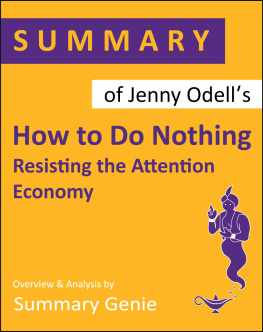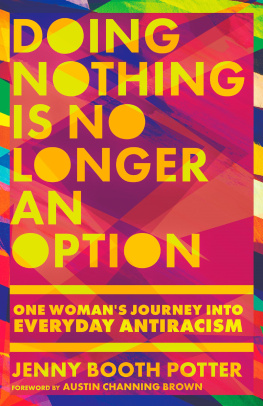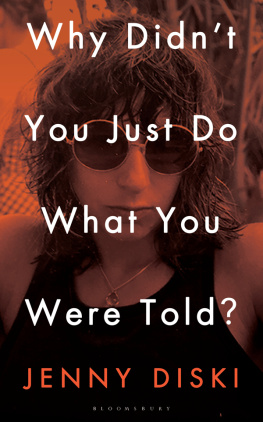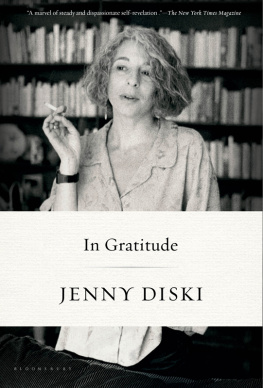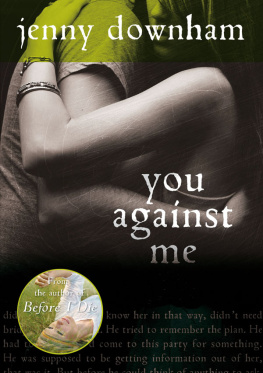First published in Great Britain in 2021 by
John Donald, an imprint of Birlinn Ltd
West Newington House
10 Newington Road
Edinburgh
EH9 1QS
www.birlinn.co.uk
ISBN: 978 1 788854 79 5
Copyright The Estate of Jenny Wormald 2021
Introduction and bibliographic section Miles Kerr-Peterson 2021
Foreword Diarmaid MacCulloch 2021
The right of Jenny Wormald to be identified as the author
of this work has been asserted by her Estate in accordance
with the Copyright, Designs and Patents Act, 1988
All rights reserved. No part of this publication may
be reproduced, stored, or transmitted in any form, or
by any means, electronic, mechanical or photocopying,
recording or otherwise, without the express written
permission of the publisher.
British Library Cataloguing-in-Publication Data
A catalogue record for this book is available on request from the British Library
Typeset by Biblichor Ltd, Edinburgh
Printed and bound in Malta by Gutenburg Press
Foreword
J enny Wormald (19422015) embodied the forthright spirit of that No Mean City in which she was born and raised. Glasgow schooled her right through to post-graduate level and the first part of her academic career; it was at the University of Glasgow that she undertook her doctorate, and there indeed she met her two successive husbands. Her lifes work of writing and teaching generously displayed those qualities on which Glaswegians are apt to congratulate themselves. What still remained the second city of Empire in her childhood prided itself on its cosmopolitan outlook: Jennys remoulding of Scottish history revelled in demonstrating Scotlands place and significance in a wider world. Perhaps her brisk intolerance of lazy thinking and genteel evasion could have been fostered elsewhere, but the Clyde afforded a wide thoroughfare for that formation.
In a city whose modern history has been structured around religious polarisation, Jenny committed herself while a university student to Roman Catholicism. Her Catholicism did not include especial esteem for many members of the Catholic ecclesiastical hierarchy, past or present, and her fury was particularly engaged in her last years by the actions of the Scottish Catholic Church authorities regarding the future care of Catholic archives. She became prominent in the campaign waged by historians against what was happening, all the more formidably for her inside knowledge of how Scottish Catholicism functioned. My email exchanges with her from that time sparkle with her strictures on eminent churchmen, worthy of comparison with the finest flytings of the Scottish Renaissance; prudence suggests that they should still best be left unquoted. At the nadir of that sorry affair, she told me that she even contemplated a return to the Church of Scotland, but ultimately thought better of it.
Such unclericalist faith made for an admirable and entertainingly astringent balance in Jennys construction of Scotlands past: John Knox suffered the lash of her tongue as much as defenders of the old religion. She enjoyed pointing out that this monumentalised hero of the Scottish Reformation had in his earlier career been remarkably indifferent to the Scottish earth, preferring the English while busily building a promising ecclesiastical future in England during the reign of Edward VI. This was the beginning of a clear-eyed reassessment of that obsessively self-fashioning cleric that continues to inspire later historical generations.1 In her first book, Jenny paid tribute to her adoptive parents for their encouragement to realise that Protestants and Catholics should never be judged as right or wrong.2 There are Catholic historians, whose writings shout Catholic at the reader line by line, and there are historians who are Catholics. Jenny placed herself emphatically in the latter category. She ignored narrative shibboleths that had sustained Scottish Catholics in nursing their wounds from a beleaguered past, but, equally, she energetically hacked away at rival versions of the national story designed to massage different egos.
Scottish identity has thus been inescapably moulded by its contentious religious history; as late as the twentieth century, the tribal religious allegiance of historians has often determined the way in which that history has been told. Across the chasm of the Reformation, Roman Catholic, Presbyterian or Scottish Episcopal searchlights shone their different beams on the medieval Scottish Church, and likewise lit up the contours of what happened after the Reformation with radically contrasting versions of chiaroscuro. Regardless of these partialities, the course of events was so very unlike Reformation in the kingdom beyond Scotlands southern border, particularly in the Scots lack of deference to the wishes of their successive reigning monarchs. The Scottish Reformation has disconcerted the English, let alone the continuing separate existence of a nation that not only provided them with a ruling dynasty in 1603, but which also preserved its distinctive self-consciousness when the two national Protestant elites struck a deal in 1707. This inconsiderately individual past was best relegated to a few side-glances, alongside the big news of Englands rise to greatness and to what it liked to see as its starring role in the resulting United Kingdom.
The enormous condescension of Westminster or Oxbridge posterity has not been without its Scottish allies from Walter Scott onwards when framing an historical narrative for the northern realm. Intent on engaging the interest of visitors spending their time and holiday cash in Scotland, many writers did not resist the temptation of emphasising the picturesque (which characteristically meant the violent and apparently lawless) in Scotlands past. The net effect was to suggest a Wrong but Wromantic polity which as far back as the Angevin era had just been waiting for the instruction in good government provided by neighbouring England in order to find Scotlands road to Victorian productivity and prosperity.
From the outset, Jennys work challenged this cosy nexus of assumptions about Scottish history: her Glasgow doctorate focused on the nobility, who were generally the anti-heroes of traditional narratives, but looked at them in a new light. This was possible through her rigorous and systematic reconsideration of a category of primary manuscript source scattered but relatively abundant by Scottish archival standards, the bonds of manrent: agreements on service between greater and lesser members of the landed elite during the fifteenth and sixteenth centuries. Insofar as previous historians had considered these bonds, they had generally done so through a conceptual framework of feudalism, with the implication that neighbouring England had done a better job of escaping such incitements to seigneurial lawlessness because of its precociously crafted system of royal justice centred on Westminster. By contrast, Jenny argued that the flexible relationships created by bonds of manrent were an effective way of managing a society based on clan and kin; moreover, the more effective monarchs of Scotland were those who exercised their rule with due consideration of this reality. Scottish medieval government had worked, in its own terms despite the debilitating effects of a state of war provoked by England in the late thirteenth century, in formal terms ending only a quarter-millennium later. In fact, it might be argued that Scottish government in its diversity worked better than the English system, particularly during the fifteenth century, when England for a considerable period seemed to be degenerating into a failed state.




